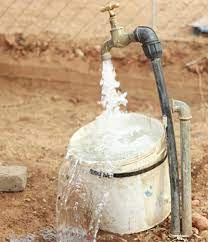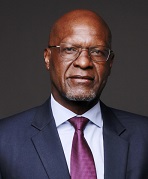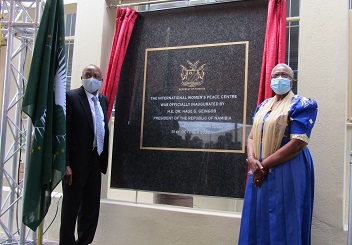
Bold action needed for a water-secure Africa

By Yogita Upadya Mumssen
Senior Infrastructure Economist, World Bank.
Water shaped Africa’s history and will be critical to its future. With one in three people facing water scarcity, the continent is contending with dangerous levels of water stress. But it also has important untapped resource potential. Well-managed water resources, both surface and underground, can help respond to Africa’s existing and future needs.
Addressing the water crisis becomes more urgent by the day as the effects of climate change, expressed largely through the water cycle, affect millions of lives. Droughts and floods are becoming more intense, and cities and farms are facing water shortages.
The March 21–26 World Water Forum, taking place for the first time on African soil, will bring these issues into sharp focus. The world’s largest water event will meet in Senegal, whose president, Macky Sall, is also chairperson of the African Union.
Bolder action is needed to scale up what works well and address systemic obstacles to water security and universal sanitation. On the African continent, many pressure points need transformative action for a greener, more resilient future.
One such example of a transformative solution is the Niger Integrated Water Security Platform Project, which is putting the country’s National Action Plan for Integrated Water Resources Management into action. The plan aims to establish an integrated platform to coordinate all water-related planning, policies, and investments. It brings together relevant ministries, departments, and agencies to address issues around the protection, management, use, and knowledge of water resources and the surrounding natural environment.
This integrated approach will also help tackle gender issues in a country where the average woman spends about 13 full days of her year collecting water and where many young women are struggling to access equal education due to a lack of menstrual hygiene facilities in schools.
Addressing water security also means working with agriculture, which employs more than 60% of the continent’s labour force and accounts for 23% of Sub-Saharan GDP. With 95 % of farming reliant on rainfall, climate change poses extreme risks to agriculture in the region. The sustainable use and management of groundwater offer opportunities to mitigate these risks and transform the sector.
In Uganda and parts of the Sahel, farmers have begun to take the lead in establishing or expanding irrigation systems at a micro-level. Farmer-led irrigation is a promising area of innovation for the continent, leading to increased production, less risk, and more income, but it needs more policy support and investment so that farmers can access the knowledge and financing they need. At the same time, sector reform and large-scale irrigation investments in countries such as Cameroon and Nigeria, with World Bank support, are helping to move the needle on irrigated agriculture.
Whether below or above ground, water flows across borders and boundaries and needs to be shared for the public good, without compromising the sustainability of ecosystems and the environment. Cooperation is particularly important in Africa, where 90% of waterfalls are within 63 international catchments, crossing multiple borders.
The continent’s third-longest river, the Senegal River, stretches across Guinea, Mali, Senegal, and Mauritania. It is the lifeblood of the area, providing people with water for energy, irrigation, and drinking. In a region plagued by drought and poverty, this river could have become the source of conflict. Instead, it is one of the world’s leading examples of how countries can work together to manage transboundary water resources. With World Bank support, the 50-year-old Organisation, the Senegal River Basin Development Organization, or OMVS is a strong and effective force for sustainable management of water resources in the basin.
Another area of water risk that has recently been highlighted is the health sector. This challenge is particularly acute in Africa, where poor water quality is the root cause of up to 80% of diseases. One of the main protective measures against the coronavirus is to wash hands with soap, yet nearly 63% of people in Sub-Saharan Africa’s urban areas struggle to access basic water services.
The COVID-19 pandemic has brought to light the significant gaps in water and sanitation services on the continent, with serious consequences for public health. Africa will need investments of up to $20 billion a year, but countries today are allocating no more than 0.5% of their GDP to the water sector. At the onset of the pandemic, the World Bank adjusted many of its water projects to provide emergency relief efforts with more WASH support.
Innovative approaches and partnerships, for both operations and financing, are needed. In Benin, four out of 10 rural households lack basic access to water services and one-fifth of the death and disease burden is related to water, sanitation, and hygiene. The World Bank is supporting the country’s efforts to involve the private sector in delivering water to rural areas and build the government’s capacity for quality service delivery.
In Nigeria, the World Bank’s Sustainable Urban and Rural Water Supply, Sanitation, and Hygiene program are supporting the country as it expands access to water and sanitation in both urban and rural areas through capacity building and sector reform.
Improving water access will promote economic growth, enhance food security, and reduce the disease burden, putting countries like Benin and Nigeria on a more sustainable, inclusive development path.
There will be many positive experiences and lessons shared at the 2022 World Water Forum – and much to discuss on how we can work to coordinate urgent action for a water-secure Africa and world. The World Bank is ready to move this conversation forward to ensure water for people, water for production, and water for the planet. – World Bank.













































